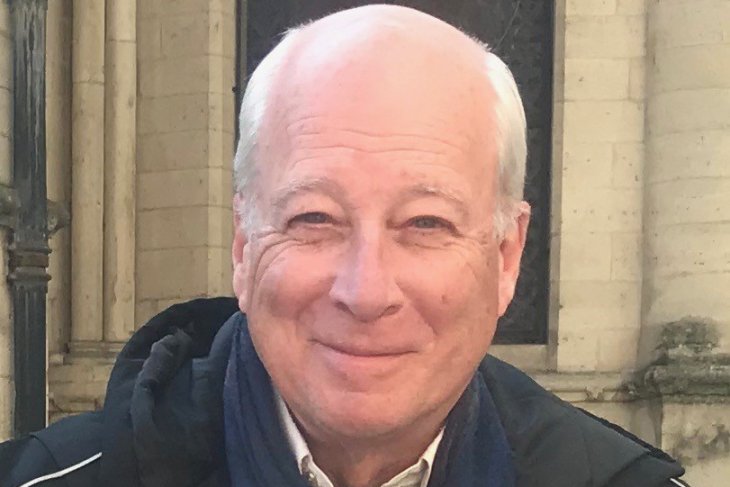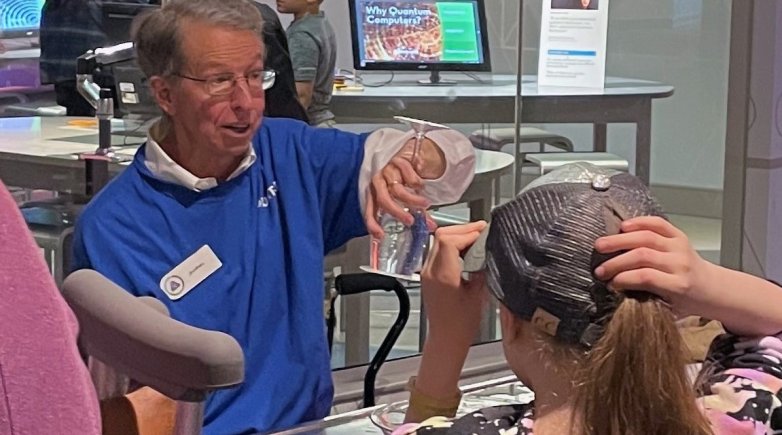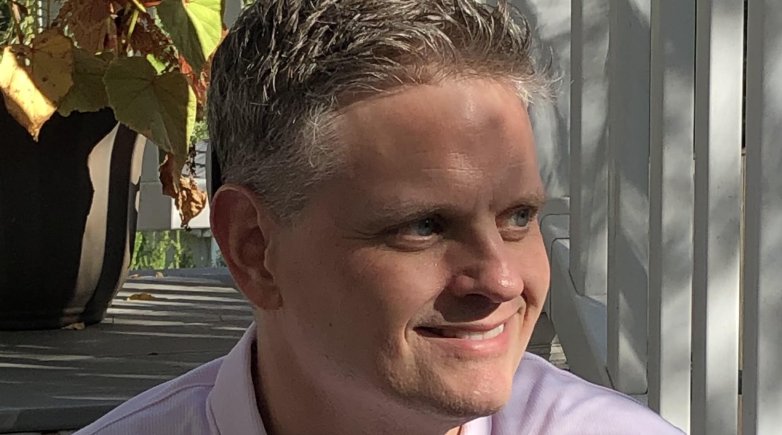Charles Trueheart

"Exeter not only taught me that I wanted to be a writer, but the only other book I’ve published was a book written while I was at Exeter."
As a preteen son of the U.S. deputy chief of mission in Saigon in the early 1960s, Charles Trueheart ’69 grew up with a unique perspective on America’s involvement in Vietnam. In addition to the influence of his father, William Trueheart ’35, his godfather, Frederick Nolting, was the U.S. ambassador in South Vietnam during a critical two-year period that led to the overthrow of the Ngo Dinh Diem regime. In his new book, Diplomats at War: Friendship and Betrayal on the Brink of the Vietnam Conflict, Charles Trueheart explores how the differing views of these two important figures — best friends in graduate school, foreign service colleagues in Paris and high-ranking diplomats — ruptured their friendship forever and mired America ever more deeply into the Vietnam War during the Kennedy years. Trueheart draws on childhood memories as well as years of experience as a foreign correspondent for The Washington Post to paint an intimate and fascinating picture of political machinations and manipulations at the highest government levels. We reached out to Trueheart to learn more about his very personal and historical memoir.
There’s an early scene in the book in which you open a box of Nolting’s personal correspondence and find a thank-you letter you wrote to him as a kid, as well as a copy of his friendly response. How much of this book relies on research? How much was drawn from memory?
This book was mostly research. I have memories, vague memories, of being a 10- and 11- and 12-year-old in Saigon in those days. I knew in real time what was happening politically, and I knew almost in real time what had happened between my father and my godfather because my mother told me. As I say in the book, my father never spoke to me of this at all; it was a kind of big elephant in the room at our house. Fritz Nolting put all his papers at the University of Virginia, which was where I found that unexpected correspondence. There’s a great deal of material of that time out there, many fine books, biographies and memoirs, some of them written immediately after the events in question, others written by a younger generation with a different perspective. So I had a wealth of information to work with.
When your mother first told you about what was happening between your father and Nolting, you write, “I was engrossed, bewildered, and began a lifetime of stewing about the whole thing.” Was it those initial sensations that ultimately made you want to write this book and tell this story?
To a certain degree, I’ve been thinking about it all my life. And since my chosen life was as a writer, it seemed like the most obvious thing to do. My mother was very history-minded and understood that she was living through very important times and wrote these wonderful letters that I quote at length. In a sense, almost from the time she first told me the story, it’s had some kind of hold on my imagination. When I retired as director of the American Library in Paris in 2017 I had the luxury of researching and writing this book.
You mention that your dad told you that Exeter changed his life. What do you remember about your own Exeter years?
Well, I don’t want to overstate it, but I owe everything to Exeter. Certainly, I learned how to write at Exeter, which was a lifelong blessing. My senior year was the first year that seniors with a certain grade point average had the chance to do an off-campus internship in the months before graduation. I was involved with Phillips Church, and I had this idea that I might become an Episcopal priest, so the school minister, Rev. Edward S. Gleason ’51, arranged for me to have an internship at two churches, St. John’s Church in Washington, D.C., and Christ Church in the town of Exeter. And instead of having me write a term paper, he said, “Write me letters about what you’re going through, like keeping a diary.” Another priest saw the letters and said, “These are very good,” and gave them to a friend at Houghton Mifflin. They were published as a book, Kyrie — Letters to a Friend. So Exeter not only taught me that I wanted to be a writer, but the only other book I’ve published was a book written while I was at Exeter.
Your new book is quite an incisive reminder of how fragile our policymaking can be, relying on a small group of people who may be biased or even inept.
To me, what makes the book attractive to read is that these are just ordinary people and the situation is so driven by their personalities. Those involved at the time included Michael Forrestal ’45, Roger Hilsman and Averell Harriman, the “Old Crocodile.” I mean, these are flesh-and-blood people who don’t necessarily know what they’re doing and they’re learning on the job. To me, that’s what’s fascinating, capturing the vulnerability and tremendous imperfections of these people, my father included.
Was it difficult to be objective in writing about your own father?
As a journalist and a historian, I had to be especially careful not to seem biased. Certainly, I gave my father less benefit of the doubt than he might otherwise have gotten from me. But one of the things I was determined not to decide in the course of writing the book was who was right and who was wrong, but to really understand why the two of them felt the way they did, and how they could have had this unbelievable misunderstanding at this important moment in their lives, a misunderstanding so great that they took it to their graves. While I don’t think my father ever felt any consolation for the point of view he had, he didn’t seem at all like a bitter man. But he certainly did everything he could to talk me out of becoming a foreign service officer — and was delighted when I became a journalist.
—Daneet Steffens ’82
This story was originally published in the spring 2024 issue of The Exeter Bulletin.



